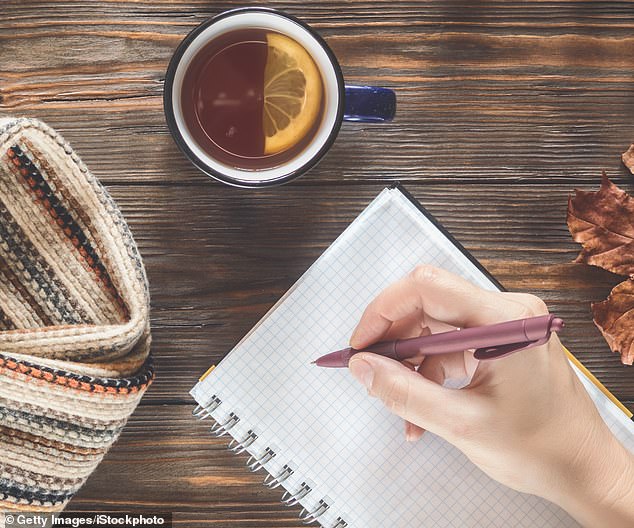There’s a particular type of patient I’ve been seeing more of lately. They sit in my consulting room, wringing their hands, describing a creeping sense of dread that wasn’t there before.
‘I don’t want to get on the Tube,’ one woman told me last week. ‘I know it’s silly, but every time I’m on a train, I’m looking at everyone, wondering…’ She trailed off, but I knew what she meant. The shocking stabbings on that Doncaster to London train had shaken her badly.
I’ve lost count of the number of conversations I’ve had recently that begin with, ‘Did you see the news about…’ followed by another horrifying incident.
The prisoner mistakenly released from Wandsworth. The knife attacks linked across multiple locations. It feels relentless, doesn’t it? As though we’re living through some sort of moral collapse, a descent into lawlessness where nowhere is truly safe anymore.
But here’s the thing that might surprise you: We’re not. In fact, statistically speaking, we’re living in one of the safest periods in modern history.
Since 2005 robbery has fallen by 60 per cent in the UK. Burglary is down by two-thirds. Overall violent crime has halved. Yes, halved.
If I’d told my younger self, fresh out of medical school in the early 2000s, that crime would plummet like this, I wouldn’t have believed it.

Social media algorithms, designed to keep us engaged, serve up the most shocking content because that’s what makes us stop scrolling and read it
So why does it feel so terrifying? Why are my patients – sensible, rational people – suddenly afraid to travel, to go out after dark, to let their children catch the bus alone?
The answer lies partly in the nature of modern information. We’re not just hearing about violent incidents in our immediate vicinity anymore; we’re hearing about every single one that happens across the entire country, often within minutes of it occurring. Social media algorithms, designed to keep us engaged, serve up the most shocking content because that’s what makes us stop scrolling and read it.
Our brains, evolved to respond to threats, can’t distinguish between a danger in our postcode and one 200 miles away.
It all registers as: Threat nearby, be vigilant.
What worries me particularly as a psychiatrist is how these news cycles can pour petrol on the flames of existing anxiety disorders. The catastrophic thinking that characterises anxiety (‘something terrible is going to happen’) finds validation in every news alert.
I’ve seen patients, who were managing their anxiety well, suddenly spiral after a weekend of being bombarded by social media coverage of violent incidents.
Their underlying condition doesn’t create the fear out of nothing; the news stories provide a hook for it to latch on to, making everything feel more urgent, more immediate and more threatening.
So what do we do? How do we function when our nervous systems are jangling with anxiety every time we step on to public transport or walk through a city centre at night?
1. Be honest about what you’re consuming. If checking the news five times a day is making you feel worse, limit it to once. Choose a specific time, perhaps over breakfast, then step away. You don’t need real-time updates on every incident.
You’re not missing crucial safety information; you’re just marinating in fear. This is especially important for anyone with a history of anxiety – think of news consumption like alcohol for someone with a drinking problem. It needs boundaries.
2. Remember our brains are terrible at assessing risk. We worry about stranger attacks while happily driving cars which are statistically far more dangerous.
We fret about plane crashes but not ladders, despite the latter killing far more people annually. This isn’t stupidity; it’s how we’re wired. But recognising this bias helps our fears.
3. Build your confidence slowly. When my patients describe avoiding trains or public spaces, I encourage gradual exposure not complete avoidance.
Avoidance makes anxiety grow. Start small: A short journey at a quiet time. Bring a friend. Use headphones and calming music. This isn’t about being reckless; it’s about not letting fear steal your life.
4. Acknowledge anxiety rather than fighting it. When you feel that spike of fear on the train, don’t berate yourself for being silly. Instead, notice it: ‘I’m feeling anxious right now.’
Then look around. What do you actually see? Usually, it’s ordinary people doing ordinary things – reading, sleeping, scrolling through phones, looking as bored and tired as you feel. This grounds you in reality rather than catastrophic possibility.
5. Talk to your loved ones, especially children, honestly but proportionately. Yes, bad things happen sometimes, but they’re rare. We take sensible precautions – staying aware of our surroundings, trusting our instincts – but we don’t let fear win. Because that’s what these isolated perpetrators of violence ultimately want: To make us feel unsafe in our own communities.
6. Consider what you can control. You can’t prevent every possible tragedy, but you can be kind to the person next to you on the train. You can check in on anxious friends. You can build connection and community, which are the very best antidotes to fear.
The world isn’t falling apart, even when it feels that way. We’re just hearing about every crack more loudly than ever before.
I loved Alan’s ‘treachery’ 
Comedian Alan Carr with Claudia Winkleman, host of The Celebrity Traitors
I’ll confess: I’ve been utterly gripped by The Celebrity Traitors. And last week’s final, which saw Alan Carr triumph, was a masterclass in exactly why we humans are such magnificently terrible lie detectors.
Time and again, someone would voice a suspicion about a Traitor, only to be talked down by the group.
Alan’s victory reveals something crucial about how we assess trustworthiness.
The Faithfuls came into that castle with 15 years of pre-existing beliefs about who Alan Carr is: relatable, funny, a bit ditzy, unthreatening.
Even when suspicions arose, the group couldn’t shake their fundamental perception of him.
This is what psychologists call the ‘halo effect’: when one positive trait (in this case, likability) influences our judgment of someone’s other characteristics, including their honesty.
The genius of Alan’s win is that he weaponised his own public persona. We struggle to believe someone who makes us laugh, who feels like a friend, could be systematically deceiving us.
Alan didn’t fit their mental template of what a Traitor looks like. But his entire career has been built on making people feel comfortable, at ease, entertained. Those same skills translate perfectly to this game.
The brilliance of The Traitors is that it’s not really a game show about deception. It’s a behavioural experiment that reveals how easily our social instincts can be exploited.
We trust faces over facts, emotion over evidence, and pre-existing perceptions over present reality.
And Alan? He understood that the best disguise isn’t a mask – it’s being exactly who people already think you are.
There are moments when NHS management decisions leave me genuinely speechless, and news that University Hospital Southampton Trust are scrapping free tea and coffee for staff is one of them.
Yes, it’ll save £50,000. It’ll also tell exhausted nurses and doctors exactly how valued they are: less than the cost of a digestive biscuit.
I’ve worked in hospitals where the only thing keeping you upright during a 13-hour shift is knowing there’s a tea break coming.
That cup of coffee isn’t a luxury – it’s a lifeline. It’s the two minutes you catch your breath between a cardiac arrest and breaking bad news to a family. It’s the moment of human connection with colleagues when you’re all running on empty.
But here’s what really grates: this same trust will undoubtedly spend far more than £50,000 on management consultants, on glossy strategy documents, on restructuring exercises that achieve nothing. Yet it’s the tea that has to go.
Morale is in the gutter. Recruitment is dire. And management’s response? Make them pay for their own bloody tea! You can’t preach about wellbeing and staff retention while literally taking the tea out of their hands. Some savings simply aren’t worth making.
The NHS is issuing a ‘flu jab SOS’ and frankly, I wish they’d used stronger language.
Here’s the brutal truth: flu kills. The vaccine isn’t perfect, but it’s the best defence we have. If you’re eligible– over 65, pregnant, or have underlying conditions – book it today. Not next week. Today.
This isn’t about you being tough enough to weather flu. It’s about not ending up on a trolley in A&E while exhausted staff try to save your life.
Dr Max Prescribes: 3 Good Things 
Recent research shows practicing gratitude may help reduce stress, improve sleep and support physical health, and may also strengthen relationships.
This week, I’m prescribing the ‘Three Good Things’ exercise: before bed, write down three things that went well today and why they happened.
Small daily moments of gratitude can have a lasting impact on mental health and may even help train the brain to naturally look for more positives than negatives.
They don’t need to be momentous — warm water from the tap, a text from a friend, the bus arriving on time. The noticing is the medicine.
